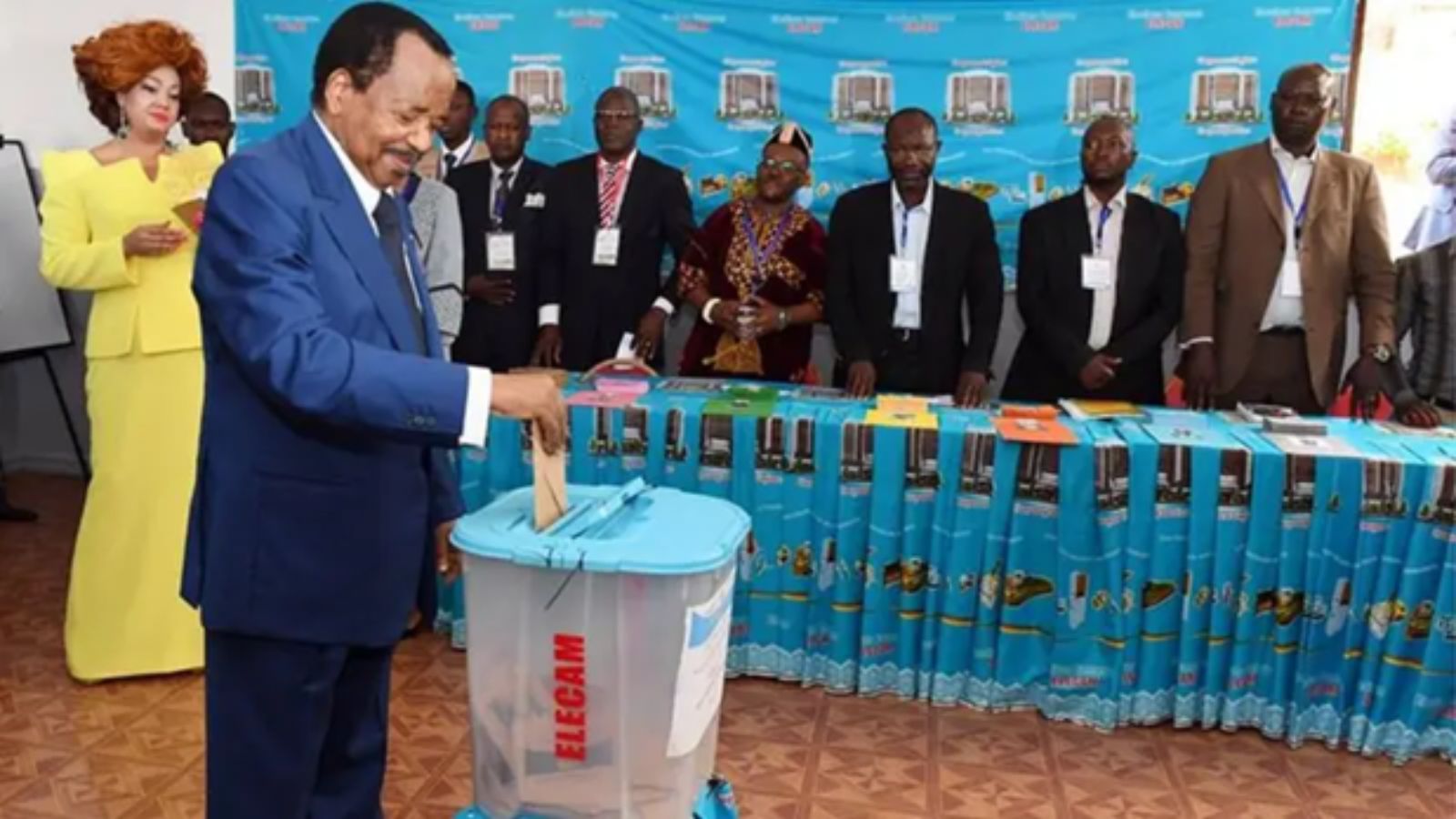Overview of the Cameroon Presidential Elections 2025
Cameroon is set to hold its presidential elections on 12 October 2025, an event that is shaping up to be one of the most consequential political moments in the country’s recent history. The contest revolves around President Paul Biya, who at 92 years old, is seeking an eighth term in office after more than four decades of rule.
The Cameroon presidential elections 2025 have already drawn scrutiny due to controversies surrounding the elections management body, Elections Cameroon (ELECAM), which disqualified the majority of the 84 presidential hopefuls. Among those excluded was Maurice Kamto, the runner-up in the 2018 elections and a leading opposition figure. His disqualification has triggered widespread criticism from both domestic political actors and international observers, raising serious concerns about the fairness and transparency of the electoral process.
Political Context and Background
The Cameroon presidential elections 2025 are taking place against a backdrop of deep-seated political, social, and security challenges. Cameroon remains divided along linguistic and regional lines, particularly in the Anglophone regions, where a long-running separatist conflict has displaced thousands and destabilized local governance.
The ruling Cameroon People’s Democratic Movement (CPDM) continues to dominate national politics, bolstered by its control over state institutions and electoral frameworks. However, critics argue that this concentration of power has weakened the country’s democratic processes and marginalized alternative voices.
The exclusion of opposition figures, combined with restrictions on media and civil society activities, has led to heightened public frustration. Youth movements, in particular, have expressed disillusionment with the perceived stagnation of the country’s political leadership and the lack of generational change.
Key Risks and Implications
The Cameroon presidential elections 2025 represent a crucial “stress test” for the nation’s stability. While President Biya’s re-election remains the most probable outcome, several risks could emerge during and after the electoral process:
- Heightened Political Tensions: Continued suppression of opposition parties and limited electoral competition could trigger mass protests, especially in urban centers and university hubs.
- Security Concerns in Anglophone Regions: Persistent separatist violence in the northwest and southwest may disrupt voting and fuel instability, complicating electoral logistics and humanitarian relief operations.
- Succession Uncertainty: Given President Biya’s advanced age and the absence of a clear succession plan, internal divisions within the ruling party could surface, posing longer-term governance challenges.
- International Repercussions: Foreign partners may reassess aid, diplomatic engagement, or investment strategies depending on the credibility of the election results and post-election stability.
While the state security apparatus is expected to maintain control, localized unrest, protests, and logistical disruptions remain possible in the aftermath of the election.
Governance Outlook
If President Biya secures another term, as anticipated, Cameroon is likely to maintain its long-standing political trajectory characterized by centralized governance and limited reform momentum. However, this continuity will not resolve the underlying governance, security, and social cohesion issues that have constrained the country’s development for decades.
International observers suggest that Cameroon’s structural challenges corruption, youth unemployment, and political exclusion could intensify if meaningful reforms are not introduced. The outcome of the Cameroon presidential elections 2025 may therefore preserve short-term stability but risks perpetuating long-term fragility.
Recommendations
- Political Stakeholders: Prioritize dialogue and transparency throughout the electoral process to prevent escalation of tensions and maintain public confidence.
- Businesses and Investors: Closely monitor the post-election environment for any disruptions to supply chains, mobility, or administrative functions.
- Humanitarian and Development Agencies: Prepare for potential displacement or unrest in conflict-affected regions, particularly in Northwest and Southwest Cameroon.
- Diplomatic Missions: Engage constructively with both government and civil society to promote peaceful political participation and encourage post-election reconciliation.
Conclusion
The Cameroon presidential elections 2025 are poised to shape the nation’s political landscape for years to come. While the re-election of President Paul Biya appears likely, it may do little to address the deeper governance and social challenges facing the country. The vote serves as both a test of institutional resilience and a reflection of Cameroon’s ongoing struggle to balance continuity with change.
How the government manages the elections, their aftermath, and public expectations will determine whether the country moves toward sustained stability or faces renewed cycles of unrest and uncertainty.
Stay Ahead of Threats with Datasurfr Predict
MitKat’s Datasurfr Predict delivers accurate, real-time, and contextualised data to help organisations respond swiftly to physical, environmental, and cyber threats.
With Sam AI, our AI Agent not only provides context for unfolding events but also analyses vetted historical data to forecast how events are likely to evolve and their potential impact using industry and location-specific probabilistic scores. Book a free demo today and see how Datasurfr Predict can transform your risk preparedness.


